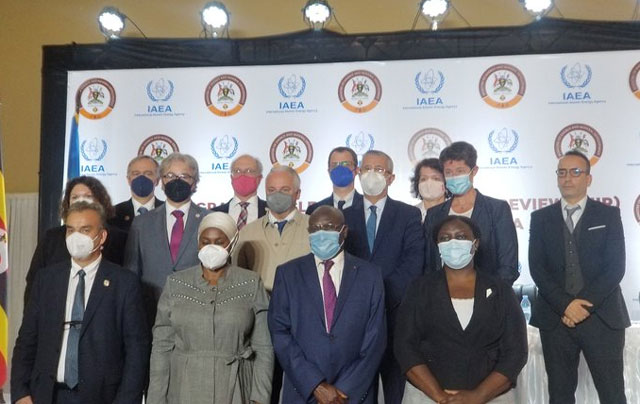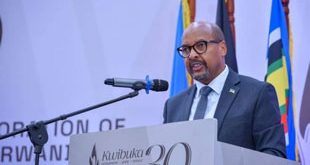
Kampala, Uganda | THE INDEPENDENT | The International Atomic Energy Agency – IAEA has endorsed Uganda’s nuclear energy power plant development following a successful review of the country’s nuclear infrastructure.
This follows the successful accomplishment of the milestone phase one approach required by the Agency for the development of the national infrastructure for nuclear power that Uganda plans to establish by 2030.
The Phase One approach milestones include understanding commitments, obligations and resource requirements before embarking on a nuclear project. The review follows a request by the Government to the Integrated Nuclear Infrastructure Review – INIR Mission on 9 May 2019 to assess the status of the nuclear power programme.
Phase two involves building specialized nuclear institutions and preparatory work towards construction, and phase three deals with managing construction and preparing for commissioning and operation.
Irene Batube, the Permanent Secretary in the Ministry of Energy and Mineral Development says the INIR Mission, backed by the international expert undertook a week-long audit of Uganda’s nuclear infrastructure development.
Speaking at the closure of the review on Monday at Speke Resort Munyonyo, Batube revealed that electricity generation potential from renewable and fossil fuels cannot meet the Vision 2040 development targets, prompting the need for nuclear power in the future energy mixes.
Mehmet Ceyhan, the Mission Team Leader said they reviewed 19 nuclear infrastructure issues to assess Uganda’s readiness towards construction and operation of the first nuclear power plant that includes legal and regulatory frameworks, management, nuclear security and safety.
Others are procurement, site and supporting facilities, funding and financing, human resource development, electrical grid, emergency planning, radiation protection, nuclear fuel cycle, and radiative waste.
Mehmet also revealed that the Mission was able to identify some good practices such as strong governmental support for the work of the Nuclear Energy Programme Implementing Organization – NEPIO, including the provision of resources to implement the nuclear power infrastructure development activities and early engagement with the local communities.
The Mission told the Government to finalize its energy policy and its roadmap for the development of nuclear power to the safe, secure and peaceful use of nuclear power. It also recommended Uganda to strengthen its plans to join the relevant international legal instruments and to develop an adequate legal framework to support its nuclear power programme.
Further, the Mission recommended that Uganda should further analyse the preparedness of the electrical grid and continue work in the areas of siting, environmental protection, financing, and radiation protection.
The Minister of State for Mineral Development, Sidronius Okasai Opolot observed that Uganda Vision 2040 recognizes the need to put emphasis on the development of nuclear power to reduce the energy deficit to provide the baseload needed for industrialization and energy security.
Rukia Nakadama Issanga, the 3rd Deputy Prime Minister who officiated at the closure of review engagement says nuclear power is envisaged as one of the options that will enable Uganda to achieve universal energy access for all by 2030 as spelt out in Sustainable Development Goal – SDG number 7 on “affordable and clean energy.”
The Cabinet in April 2015 approved the Nuclear Power Roadmap Development Strategy 2014 – 2016 to guide the development of Nuclear Power infrastructure, the financial and human resources that are required by the government and other stakeholders to develop and commission the first power plant in Uganda.
The government concluded pre-feasibility studies for the introduction of nuclear power in the electricity generation mix in 2019. Potential sites for the construction of a 2.000 MW Nuclear Power Project for energy security and industrialization have been identified in eight cities that include Buyende, Nakasongola and Lamwo Districts among others.
****
URN
 The Independent Uganda: You get the Truth we Pay the Price
The Independent Uganda: You get the Truth we Pay the Price


